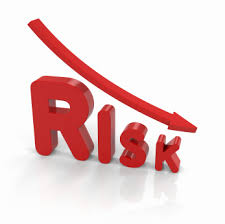Ronald L. Doering, the first president of the Canadian Food Inspection Agency and currently counsel in the Ottawa offices of Gowlings, writes:
 One of the most persistent regulatory myths is the notion that politics can and should be kept out of science-based regulatory decision making. But as Covello and Merkhofer have clearly shown: “In practice, assumptions that have policy implications enter into risk assessment at virtually every stage of the process. The idea of a risk assessment that is free, or nearly free, of policy considerations is beyond the realm of possibility.” It is surprising how much our public discourse is still dominated by the quaint utopian view that science and policy can be strictly separated.
One of the most persistent regulatory myths is the notion that politics can and should be kept out of science-based regulatory decision making. But as Covello and Merkhofer have clearly shown: “In practice, assumptions that have policy implications enter into risk assessment at virtually every stage of the process. The idea of a risk assessment that is free, or nearly free, of policy considerations is beyond the realm of possibility.” It is surprising how much our public discourse is still dominated by the quaint utopian view that science and policy can be strictly separated.
This enduring myth is the basis of the current kerfuffle regarding the government’s “war on science,” the allegation that decisions are based on ideology, not science, that politicizing science is a very bad thing and that all decisions must be “evidence-based.” Ironically, these same critics make a virtue out of being skeptical of mainstream science by opposing, for example, fluoridation, GM food, irradiation and vaccinations. But their basic misunderstanding is that they believe or pretend to believe that science and policy can be separated. Their whole concept of “evidence-based” is flawed. It is the legitimate and necessary role of politicians to take the science-based risk assessment and then carry out the policy based risk management function by weighing the social, political, economic, ethical and environmental factors in order to arrive at the appropriate regulatory decision. In our democratic system scientists cannot, should not, carry out what is the legitimate role of elected politicians and their senior advisers.
What should be the acceptable level of PCBs in farmed salmon? What should be the appropriate mix of rules to prevent the importation of BSE into Canada? What is the acceptable level of phthalates in plastic toys? What are the best regulations to prevent the importation of FMD into Canada? What is the right regulatory regime for the approval of genetically modified traits in seeds? What is the acceptable level of GM corn in wheat products? What should be the necessary rules for the storage of high level nuclear waste? What is the safe level of BPA in water bottles? How should the level of salt in processed food products be regulated? Should it continue to be illegal to sell raw milk? What should be the rules for raw milk cheese? This is just a small sample of the science-based public policy issues with which I was directly involved in recent years.
 In all of these cases it was the regulator’s task to protect the public health and safety of Canadians through a complex process of weighing the many factors involved without, may I say again, the aid of some quantitative cost benefit analysis; the factors were too complex to be monetized in a way that would be useful for decision making. In all these cases the science was relevant by not determinative. And yet in all these cases the parties argued that the basic question was one of science: if only we could get the science right, the public policy answer would follow. If only the world were that simple.
In all of these cases it was the regulator’s task to protect the public health and safety of Canadians through a complex process of weighing the many factors involved without, may I say again, the aid of some quantitative cost benefit analysis; the factors were too complex to be monetized in a way that would be useful for decision making. In all these cases the science was relevant by not determinative. And yet in all these cases the parties argued that the basic question was one of science: if only we could get the science right, the public policy answer would follow. If only the world were that simple.
When I was president of Canada’s largest science-based regulator, I dealt regularly with scientists who were seemingly unaware how much their science advice was imbued with unstated policy considerations, and how much the uncertainty of their science required the consideration of other factors. Many academic and government scientists and their public sector unions still shamelessly march in the streets arguing that decisions must only be “evidence-based.” My nutrition and food science students seem genuinely unaware, uncomfortable even, with the idea that science-based health risk assessments are replete with policy considerations.
We need to engender a broad public debate about the role of science and scientists in policy making. For starters we need to debunk the myth that politics can and should be taken out of science-based regulation making.
